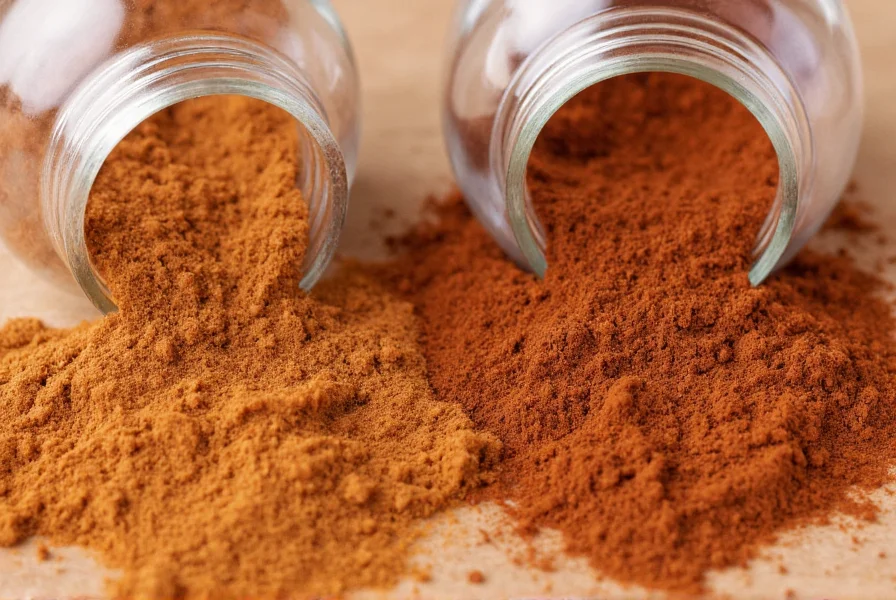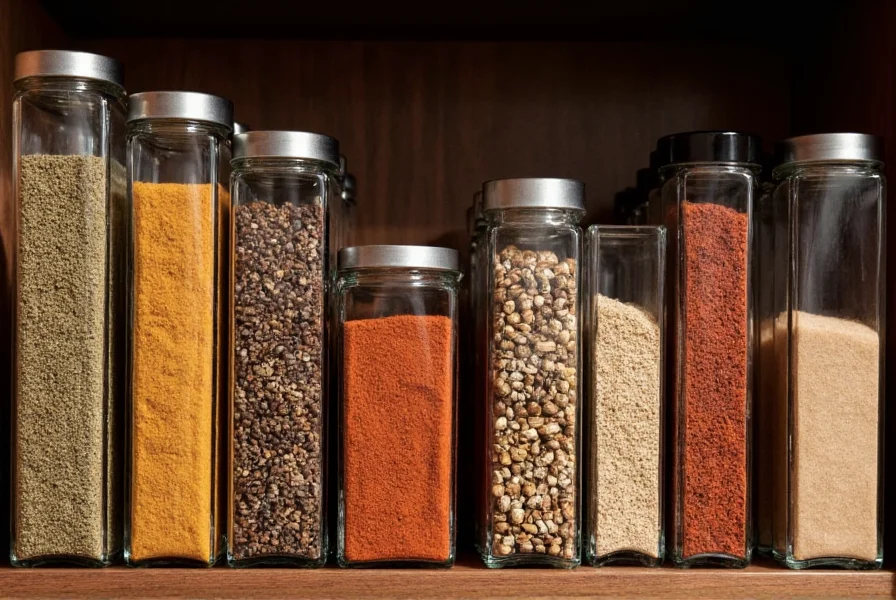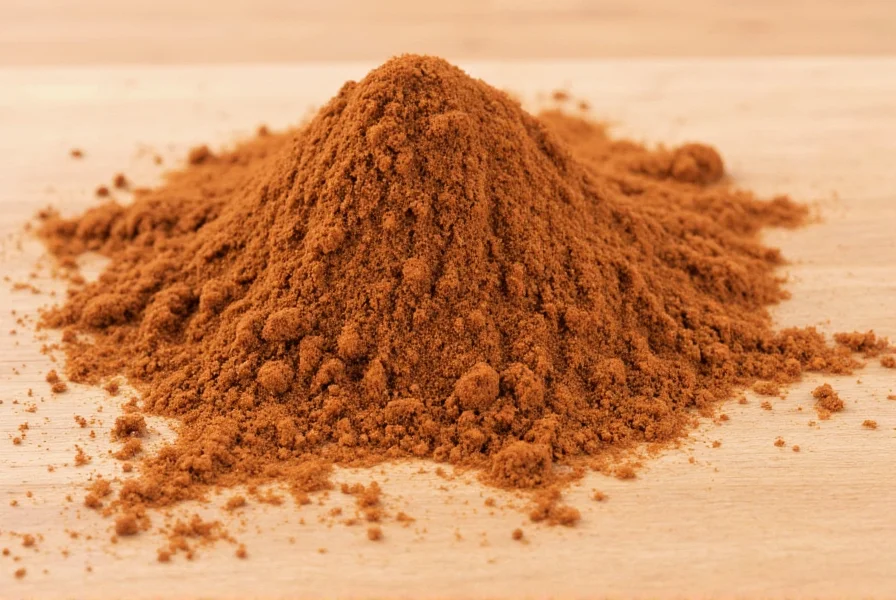Ground cinnamon is one of the most stable spices in your pantry, but understanding its shelf life helps maintain culinary quality. Unlike perishable foods, spices don't typically spoil in ways that cause foodborne illness, but they do undergo chemical changes that affect flavor, aroma, and color.
How Ground Cinnamon Degrades Over Time
Ground cinnamon contains essential oils like cinnamaldehyde that provide its distinctive flavor and aroma. These volatile compounds gradually evaporate when exposed to air, light, and heat. Unlike whole cinnamon sticks which retain oils longer, ground cinnamon's increased surface area accelerates this process.
Moisture is cinnamon's primary enemy. When humidity penetrates packaging, ground cinnamon can clump and potentially develop mold in extreme cases. Proper storage prevents this while maintaining potency. The spice doesn't become dangerous when old, but it certainly becomes disappointing in your recipes.
Signs Your Ground Cinnamon Has Lost Quality
Check for these indicators that your ground cinnamon has passed its prime:
- Faded color - Fresh cinnamon has a vibrant reddish-brown hue that fades to dull brown
- Weak aroma - Rub a small amount between fingers; fresh cinnamon should release a strong, sweet scent
- Clumping - Moisture exposure causes hard clumps that don't break apart easily
- Bland taste - Old cinnamon lacks the characteristic warm, sweet heat
- Mold presence - Visible fuzzy growth indicates moisture contamination (discard immediately)

Ground Cinnamon Shelf Life Timeline
| Storage Condition | Peak Flavor Duration | Safe Consumption Period |
|---|---|---|
| Pantry (original packaging) | 6-12 months | 1-2 years |
| Airtight container at room temperature | 1-2 years | 2-3 years |
| Refrigerated in airtight container | 2-3 years | 3-4 years |
| Freezer in vacuum-sealed container | 3-4 years | Indefinitely |
These timelines represent optimal conditions. Real-world shelf life depends on your specific storage environment and initial spice quality. The "best by" date on packaging indicates peak quality, not safety expiration.
Maximizing Ground Cinnamon Freshness
Follow these evidence-based storage practices to extend your ground cinnamon's shelf life:
- Choose airtight containers - Transfer from flimsy store packaging to glass jars with tight seals
- Store away from heat sources - Keep at least 3 feet from stove, oven, or dishwasher
- Maintain consistent temperature - Avoid locations with temperature fluctuations
- Prevent moisture exposure - Don't store above the sink or near dishwasher steam
- Use clean, dry utensils - Introducing moisture during use accelerates degradation

Is Expired Ground Cinnamon Safe to Consume?
Ground cinnamon that's simply old but properly stored poses no food safety risks. The primary concern is diminished flavor rather than health hazards. However, discard cinnamon immediately if you notice:
- Visible mold growth (fuzzy white, green, or black spots)
- Unusual sour or musty odors
- Signs of insect infestation
- Excessive clumping that doesn't break apart with dry fingers
Unlike fresh foods, dried spices don't support dangerous bacterial growth when stored properly. The extremely low moisture content prevents pathogen proliferation. Your main consideration should be culinary quality rather than safety concerns for properly stored cinnamon.
Testing Old Ground Cinnamon
Before discarding older cinnamon, perform this simple freshness test:
- Place 1/4 teaspoon in a small bowl
- Add 2 tablespoons of hot water (not boiling)
- Cover and let steep for 5 minutes
- Uncover and smell the liquid
Fresh cinnamon will release a strong, sweet aroma. If you detect little to no scent, the spice has lost most of its volatile compounds and won't contribute meaningful flavor to your dishes. This does ground cinnamon expire test helps determine whether to keep or replace your supply.
When to Replace Your Ground Cinnamon
Consider replacing your ground cinnamon when:
- It fails the hot water freshness test described above
- You can't detect its characteristic aroma when rubbed between fingers
- Recipes require noticeably larger amounts to achieve desired flavor
- It shows any signs of moisture damage or contamination
For optimal culinary results in baking and cooking, replace ground cinnamon every 1-2 years even with proper storage. Professional chefs often replace spices more frequently to ensure peak flavor in their dishes.
Frequently Asked Questions
Can you get sick from old ground cinnamon?
No, properly stored ground cinnamon doesn't become unsafe to eat as it ages. The main issue is diminished flavor rather than food safety risks. Discard only if you notice mold, insects, or unusual odors indicating contamination.
How can you tell if ground cinnamon is still good?
Perform the hot water test: steep 1/4 teaspoon in 2 tablespoons hot water for 5 minutes. Fresh cinnamon releases a strong, sweet aroma. Also check for vibrant color, absence of clumping, and a potent scent when rubbed between fingers.
Does ground cinnamon need refrigeration after opening?
Refrigeration isn't necessary but can extend shelf life. Store ground cinnamon in an airtight container in a cool, dark pantry for 1-2 years. For longer storage (2-3 years), refrigeration in a moisture-proof container helps maintain potency. Avoid frequent temperature changes that cause condensation.
Why does my ground cinnamon clump together?
Clumping occurs when ground cinnamon absorbs moisture from the air. This happens when stored in non-airtight containers, in humid environments, or when introducing wet utensils during use. While clumped cinnamon is usually still safe, it indicates reduced quality. Break up small clumps with a fork or spice grinder for better distribution in recipes.
Is there a difference between cinnamon shelf life and expiration?
Yes. Shelf life refers to the period when cinnamon maintains optimal flavor and potency (typically 1-2 years). Expiration relates to safety, which doesn't apply to properly stored ground cinnamon. The "best by" date indicates peak quality, not when it becomes unsafe. Ground cinnamon remains safe indefinitely when protected from moisture and contaminants, though flavor diminishes over time.











 浙公网安备
33010002000092号
浙公网安备
33010002000092号 浙B2-20120091-4
浙B2-20120091-4